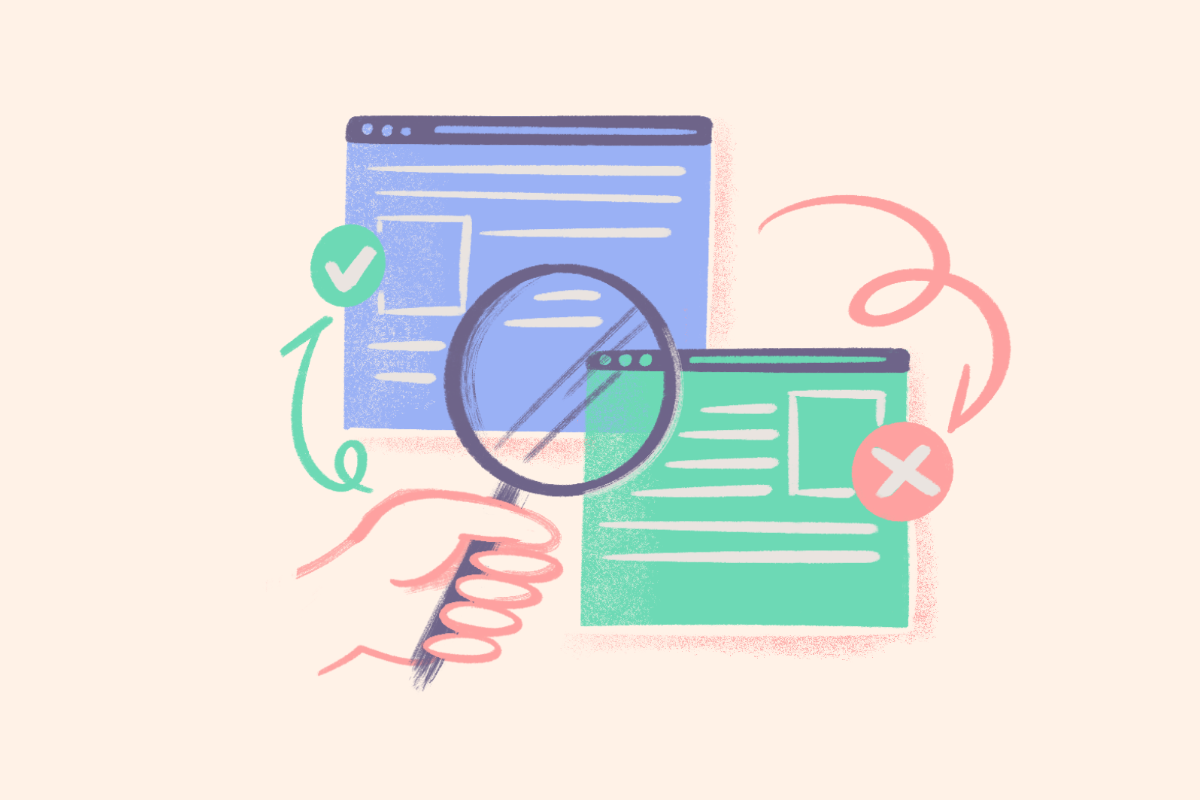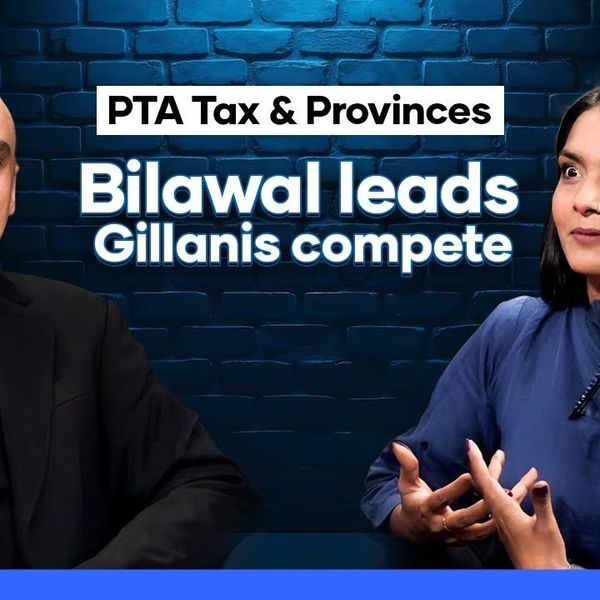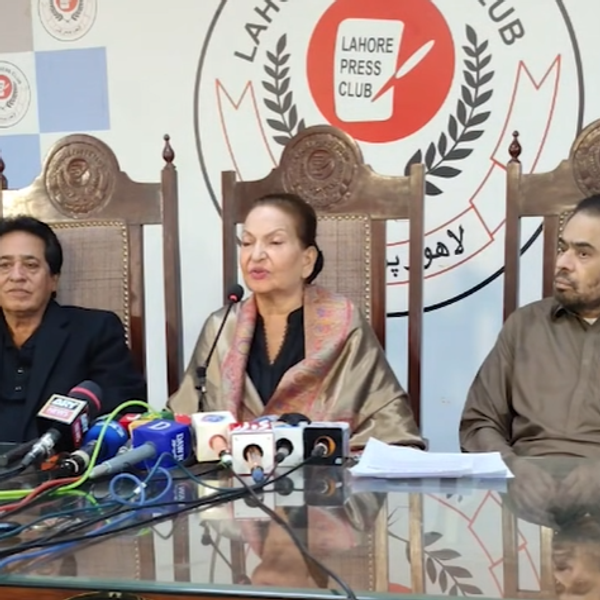
Laiba Zai
Producer, News Desk
Laiba is a multi-media journalist, passionate about American politics and digital rights. She has a degree in social sciences from IBA, Karachi.

A representational image showing fact-checking.
Nukta
Fact-checking groups reject Zuckerberg's censorship claims
Ending program may worsen online divisiveness, affect news consumption
Fact-checkers face layoffs as journalism job market shrinks
In a controversial move, Mark Zuckerberg, CEO of the social media giant Meta, announced on Tuesday that the company is ending its fact-checking program with trusted partners in the US. This initiative will be replaced by a community-driven system, modeled after X’s Community Notes.
Zuckerberg attributed the decision to concerns about ‘censorship’ and the need to uphold ‘free speech,’ citing recent elections as a “cultural tipping point towards prioritizing speech”.
In a video detailing the upcoming changes, Zuckerberg stated, “We’re going to get back to our roots and focus on reducing mistakes, simplifying our policies, and restoring free expression on our platforms.”
The policy shift will impact Meta’s major platforms—Facebook, Instagram, and Threads—which collectively boast over 3 billion users worldwide.
Following the announcement, Angie Holan, Director of the International Fact-Checking Network (IFCN), expressed disappointment in a public statement.
“This decision will hurt social media users looking for accurate, reliable information to make decisions about their everyday lives and interactions with friends and family,” she said.
The IFCN has previously partnered with Meta through its third-party fact-checking program (3PFC), which certified independent fact-checkers to address viral misinformation. These fact-checkers focused on debunking provably false claims, especially those with the potential to mislead or cause harm.
Under the now-defunct program in the U.S., fact-checking partners were empowered to review a wide range of content across Facebook and Instagram, including videos, images, links, and text-only posts.
How does fact-checking work?
"At its core, fact-checking ensures that the information shared is accurate and verified,” said Zahra Mazhar, the project lead at iVerify, a non-partisan fact-checking initiative by the Centre for Excellence in Journalism (CEJ) at the Institute of Business Administration (IBA) in Karachi.
“The methodology involves critical steps, from questioning the need for a fact-check to determining the best approach to conduct it, always aiming to prevent the propagation of misinformation,” she added.
Fact-checking at Meta was conducted by independent fact-checkers who reviewed and rated potential misinformation across its platforms.
“To join Meta’s 3PFC, you must first become an IFCN signatory. The process is rigorous and can take up to 18 months. Only then can you be considered for the 3PFC program,” explained Sofyan Sultan, founder of Soch Fact-Check, Pakistan’s only IFCN signatory and Meta’s official partner for the 3PFC program.
Sultan noted that for Meta’s program, content flagged by Meta’s AI as potential misinformation is placed in a queue. Fact-checkers then select important or viral pieces to investigate. If content is found to be false, it is flagged accordingly.
“The articles written by fact-checkers about the content they review must adhere to strict IFCN guidelines and methodology,” he emphasized.
'Nothing to do with censorship'
Mark Zuckerberg cited censorship as a key reason for ending Meta's fact-checking program. However, organizations like PolitiFact and the International Fact-Checking Network (IFCN) refute this claim, emphasizing that fact-checking is not equivalent to censorship.
“This decision has nothing to do with free speech or censorship,” said Aaron Sharockman, executive director of PolitiFact, one of Meta's 10 fact-checking partners in the U.S.
According to Meta's own webpage detailing its fact-checking program, content removal is based on Community Standards, not the fact-checking program, which does not remove content, accounts, or pages.
Sofyan further explained that independent fact-checkers are only responsible for flagging content, while removal of content is done by Meta’s teams internally.
"Fact-checking provides context or downgrades content that may be misleading. Censorship implies the content has been taken off altogether. He (Zuckerberg) is parroting the victorious political ideology of the moment," said Nukta's Pakistan Editor Amber Shamsi - a founding member of the iVerify fact-checking program at CEJ.
Meta’s decision comes in the wake of CEO Mark Zuckerberg’s growing alignment with the U.S. Republican Party, under which Donald Trump secured a second term. The company recently added Dana White, president of the Ultimate Fighting Championship (UFC) and a known Trump ally, to its board. Zuckerberg also donated $1 million to Trump’s inauguration fund.
For years, Republicans have raised concerns about alleged social media censorship, blaming fact-checkers for favoring Democrats. However, these claims have been debunked by both an NYU report and a 2024 study published in the journal Nature.
Fact-checking vs. community notes
"Community notes crowd-sources the fact-checks and is far more vulnerable to bad actors armed with an agenda given that for CNs to be visible, they need to be rated through a consensus," said Amber.
As an alternative to the fact-checking program, Zuckerberg introduced crowd-sourced community notes, similar to the system used by Elon Musk's platform X.
"If a majority group agrees on a viewpoint, their community note may be considered legitimate and appear on these platforms. But who’s to say they aren’t from one side, pushing a specific agenda? The accountability is lacking at many levels—it’s essentially just like commenting under a post and sharing an opinion," claimed Zahra.
In contrast, Meta’s independent fact-checking partners are trained to rigorously identify and verify claims.
Sofyan explained that to qualify as a Meta partner, fact-checkers must submit 50 fact checks according to IFCN guidelines, without compensation. Even then, there is a significant chance of rejection. He added that independent fact-checkers are not allowed to flag content from official political party members or heads of state.
"Each IFCN signatory must submit a detailed application annually to renew their status. This includes providing information on their funding sources, and it’s mandatory for the organization’s legal owners, trustees, or directors to submit their tax returns," noted Sofyan, emphasizing the IFCN’s commitment to eliminating political bias.
Impact of ending fact-checking
The end of fact-checking in the U.S. could exacerbate the growing divisiveness in online spaces.
"I think online spaces are already divisive and filled with false information, making it impossible to fact-check everything. People often continue to share misinformation even after a fact check is provided, sometimes believing it’s biased. Without official fact-checkers, the problem only worsens," said Zahra.
While Meta has announced that its fact-checking program will end only in the U.S. for now, leaving other countries unaffected, fact-checkers like Sofyan remain skeptical.
Sofyan pointed out that fact-checking partners in one country can flag content from another, suggesting that the program may eventually end globally. He added that Zuckerberg now has free rein over the dissemination of information on his platform, with no oversight.
"Zuckerberg has cynically stuck his finger in the changing political winds, describing the end of third-party fact-checks as a 'cultural' shift. He is a businessman, and this is not about social or democratic responsibility. It’s a shift to protect the profit his company makes from hate, violence, and conspiracy theories that have caused serious harm," Amber remarked.
Sofyan also explained that news consumption has increasingly shifted to platforms like Meta, where users primarily access news content.
As a result, advertising revenue for news content now flows to Meta, rather than to journalists or news organizations.
Research shows that as social media becomes the dominant news source, traditional journalism faces financial challenges, with platforms like Meta benefitting from advertising revenues while independent journalists and news outlets struggle.
Previously, fact-checkers were compensated for their work on these platforms, ensuring the accuracy of news shared on Meta. According to the April 2024 State of the Fact-Checkers Report, Meta's fact-checking program has been the primary income source for participating organizations.
With the end of the fact-checking program, a significant number of journalists and fact-checkers prepare for layoffs, further deepening the already shrinking job market in journalism.










Comments
See what people are discussing